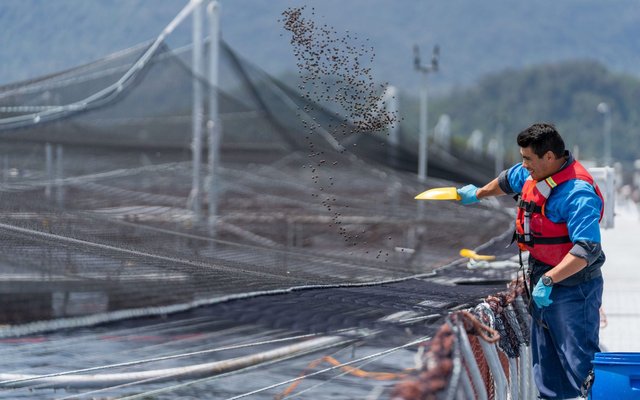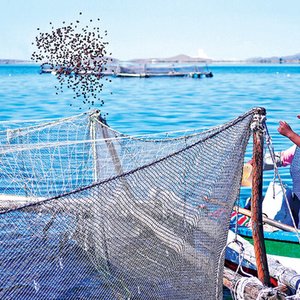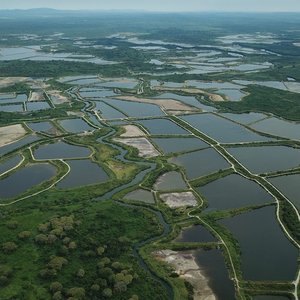The Aquaculture Stewardship Council (ASC) announced that from January 14, 2023, feed mills can apply for certification to ASC’s Feed Standard which covers legal, social, and environmental requirements for both the feed mill’s own operations and for the suppliers of ingredients used in their feed production. ASC-certified farms have until January 14, 2025 (24 months) to switch to ASC-compliant feed to continue meeting the ASC Farm Standards.
By requiring responsible sourcing for all major feed ingredients, ASC aims to address issues in both the supply chain and at a raw material level. Requirements on reporting of performance will also improve assurances by creating transparency throughout the entire aquafeed supply chain, as well as rewarding environmental sustainability and assisting future research into responsible feed.
“To farm seafood responsibly demands that the ‘upstream’ impacts associated with the production of feed ingredients be monitored and reduced, with an imperative focus on social responsibility and environmental improvement. This is exactly the role that the new ASC Feed Standard will play by incentivizing these improvements. Given the increasing importance of farmed seafood within global food systems, this has become ever more crucial as the population of the world increases. Ensuring the feed used by this vital sector is sourced responsibly through the holistic approach set out in the ASC Feed Standard is essential to achieving sustainable aquaculture. I am especially proud that the ASC Feed Standard upholds key labor requirements across feed ingredient supply chains and seeks to mitigate and reduce risks of deforestation and land conversion,” said ASC CEO, Chris Ninnes.
Responsible sourcing of marine and terrestrial ingredients
Certified feed mills must source environmentally responsible marine and terrestrial ingredients. The ASC Feed Standard uses an improvement model for marine ingredients which requires feed mills to source increasingly from responsibly managed fisheries over time. MarinTrust and Marine Stewardship Council (MSC), both full members of the ISEAL Alliance, play a crucial role in this mechanism and form the key stepping stones for improvement.
The model offers a unique opportunity for feed mills to work together with their fishmeal and fish oil suppliers to meet the increasing requirements over time. Ultimately, the majority of the volume of marine ingredients needs to be derived from MSC fisheries.
For terrestrial plant ingredients such as soy or wheat, feed mills are required to record and report all ingredients that make up over 1% of feed and will need to take steps to ensure they have been responsibly sourced. Similarly, feed mills must also work and commit to ensuring their supply chains become free from risks of deforestation or land conversion.
Moreover, ASC-certified feed mills will have to record and report their energy use and greenhouse gas emissions and work to improve energy efficiency, use of renewables, and water usage.
Social impacts on the feed industry
Feed industry operations contribute to the economic backbone of the local communities in which they are located. Therefore, another core requirement for feed mills is adhering to social responsibility. This includes fair treatment and wage of employees, respect for indigenous and tribal people’s rights, and ensuring that no child or forced labor exists. The ASC Feed Standard includes many other social and effective management system requirements, including policies, procedures and processes for topics such as the prevention of corruption, bribery, or falsification of documents.
ASC-certified feed mills are also required to conduct Due Diligence on their supply chains to assess and mitigate these key social risks.
Next steps
“We look forward to supporting feed mills who want to work towards ASC certification, as well as helping producers prepare to transition to sourcing ASC-certified feed over the next 24 months,” ASC director of standards and science, Michiel Fransen, said. “By incentivizing more feed mills to work towards certification to meet the growing demand from ASC-certified farms, we ensure that aquafeed and raw ingredients supply are produced responsibly.”
Learn more about the ASC Feed Standard here. Feed mills looking to get certified can get further details here.













